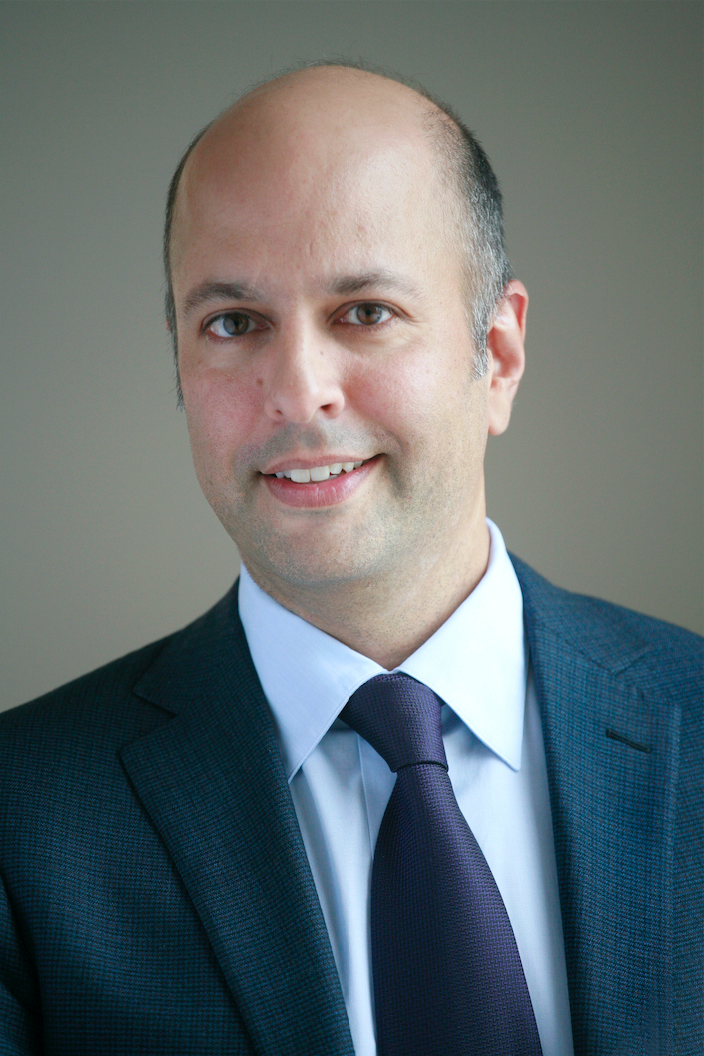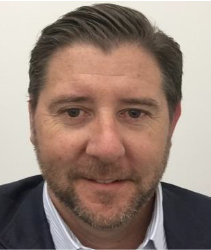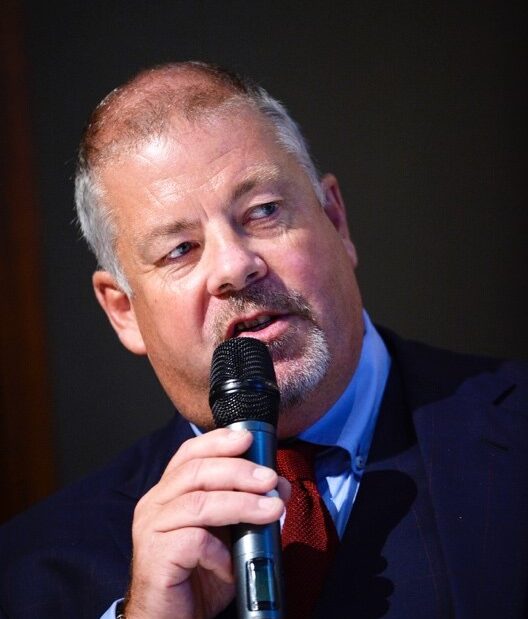Transcripts

Erik: Joining me now is Lakshman Achuthan, founder of the Economic Cycle Research Institute. Lak has prepared a slide deck to accompany today's interview. Registered users will find the download link in your research roundup email. If you don't have a research roundup email, it means you're not yet registered at macrovoices.com. Just go to our homepage, click the red button that says looking for the downloads. Lak, it's great to have you back on the program. Last time we talked you were I think earlier than most people calling out the inflation turning up the way that clearly it has. Are we still looking at and I think it was not just inflation. But you were looking at business cycles turning up and a number of things. Let's do a quick review of what we discussed last time we had you on the program and what's changed since then.
Lakshman: Sure, sure. Good to be back with you, Erik, thank you. I think we spoke last fall of 2020. And we were kind of updating several cycle upturn calls. And we look at many different cycles at ECRI. And so we had the business cycle upturn in the United States. We had the global industrial cycle upturn that we had also made from the spring of 2020, which was I think it's been a very key call. And then the related inflation cycle. It's a separate cycle upturn call that we made late last summer. And on each one of those cycles. There's been really interesting developments, Mostly I have to say to the downside, decelerations that we've been working through, you know, with people we speak with or our clients in recent months. And so, you know, last time we were on, we weren't equivocating. You know, there was lots of drama in the headlines. It seems like that's the norm these days, but during the whole all the upturn last year, we did not equivocate on those uptrend calls at all. Stocks went certainly along for the ride, commodity prices went along for the ride, inflation stuff went along for the ride. Even though you know, there was lots of stuff going on pretty serious stuff with a pandemic, and also alongside the political strife.
And all those calls, they held straight through the winter. But they started to show up like different cycles started to peek out. And you mentioned, thank you for mentioning the slide deck at the beginning of the call. We have this many cycles framework, what we call the equity framework. It's not a model, right? So nothing I'm talking about today is about models. It's about an array of leading indexes, coincident and leading indexes have different distinct but related cycles that we're tracking. And there's dozens of them. There may be dozens of them for one economy, and we're doing them for 22 economies. And so it's from that vantage point that I'm giving comments today.
And our basic process that's important to understand, and it kind of sets up this discussion is that once we've made a cycle turn call like last year was all the upturn calls. You know, almost immediately, our job is to be on the lookout for the next downturn. What's the risk of that cycle turn, you know, that cycle turning again. And, as I've intimated now, global industrial growth, we've made a downturn call in global industrial growth. And I think we should get into the nitty gritty on that. Separately so full period on that, and then a full stop and then a separate cycle is growth in the US economy. And so here, it's quite separate from the global industrial downturn call. We have a US growth rate cycle downturn call. And there are some you know that the on the inflation cycle call where you know, we did have that strong upturn call. Our forward looking future inflation gauge, the highest reading in that looks to be back in April. And it's kind of gone sideways a little bit. So we don't have the emphatic run up that we had earlier. And we can get into what's going on there too.

Erik: Joining me now is Santiago Capital founder Brent Johnson. Brent prepared an excellent slide deck for today's interview and I strongly encourage you to download it as we will be referring to the charts and graphs that contains during today's interview. Registered users will find the download link in your research roundup email. If you don't have a research roundup email, it means you're not registered yet at macrovoices.com. Just go to our homepage, macrovoices.com, click the red button that says looking for the downloads. Brent, it has been way too long since we've had you on the show. It's great to have you back. Let's jump into your slide deck and talk about a favorite topic of mine when I talk to you, the US dollar. Everybody's asking me I can't decide.
Brent: Well, I had a feeling you might ask me about the dollar, Erik. So that was the first slide that I threw in here. But in any case, it's really great to be back. I always appreciate the opportunity to talk with you and your listeners. It's one of my favorite podcasts out there so happy to jump in. And, you know, the point I wanted to make with this first slide here is I was here talking with you about a year ago, Erik, and the dollar was around 93. You know, and since that time, I've had innumerable people tell me, remind me, try to convince me that the dollar is going to zero. And there's just nothing that can stop it.
However, you know, in the last year, despite printing over $1.4 trillion, despite having a democratic president get elected, despite having a totally democratic congress get elected, despite numerous stimulus plans, a contested elections, and social unrest. The dollar is at 92. So I guess I would say are you sure? Are you sure the dollar is go to zero? I'll tell you I'm not sure about anything, Erik. But, I think it's a very uncertain time. And I think a lot of people who are certain in their narratives may be proven wrong. And so we'll just have to see how it goes.

Erik: Joining me now is Bill Blain, strategist and head of alternative assets for Shard Capital, and probably better known as the author of Blain's Morning Porridge. One of the most intriguing investment blogs on the internet. Bill, it's great to have you on as a first time guests. I've been asking everybody about inflation. Janet says it is transitory. I think my favorite quote that I've heard so far is World War II was transitory. What do you make of this transitory argument? Is inflation here to stay? Is this a secular phenomenon? And what does it mean?
Bill: Yeah, I rather the opinion that inflation is not only here to stay, but the most significant thing that's going on is we have long term inflation is now being imported into the real world from distorted financial assets. Everybody tells me that there's no inflation out there. And what we're seeing is just a transitory spike caused by supply chains breaking down, and things like the chip shortage and people who are anticipating a faster recovery. But what we're really seeing is all the inflation that's been generated over the last 12 years of monetary experimentation, quantitative easing, and buying back bonds and keeping interest rates artificially low, that's generated tremendous inflation in financial assets. And that financial asset inflation is no creeping into the real world.
So you're going to see a whole series effects inflationary moves that occur as a result of that. Plus, I think we're also going into a very different world that is not going to be one where you can easily, simply brush off inflation effects as transitory. I mean, let's just think for one second about some real world events that have just occurred. Like all these climate disasters we've seen in the last month, they cause real costs. These costs have to be paid from somewhere. And that is going to be inflationary in its own right. So I think we really have moved into a new world where inflation is going to start really impacting bottom lines again.

Erik: Joining me now is Darius Dale founder and CEO of 42 Macro. Darius prepared an extremely complete chart deck for today's interview. I strongly recommend that you download it. Registered users will find the download link in your research roundup email. If you don't have a research roundup email, it means you're not yet registered at macrovoices.com. Just go to the homepage, macrovoices.com, click the red button that says looking for the downloads. We're going to be referring to the slides in that deck. We're not going to have time for all of them. But I encourage you to go through all of them at your leisure because it's a really great deck.
Darius, I want to start with a story which you know, when we booked you for this. We said listen buddy, we're really looking for a deflationist because we've had so many secular inflationists including myself, we want to offset that with an opposing view. And you said, sorry, I'm a Model-Driven guy. And my model says inflation, then something changed, because I got an email from you just a couple of hours before we did this interview on Tuesday morning. And you said you might get your deflationists after all. What did you mean?
Darius: Hey, thanks Erik. It's great to be back. So in terms of what changed, we run this dynamic factor model that we use to now cast what we call the dominant market regime or what we believe or how we believe investors should be orienting their risk management exposure. As we show on slide 6 through 13, that system, and it's born out of 42 market indicators that were scoring through the lens of our volatility, just a momentum signaling process. That system finally tipped in favor of deflation, as of this morning Tuesday, July 20.

Erik: Joining me now is Aaran Param, investment strategist for Variant Perception. Aaran, great to get you on the program. Let's start with the big debate in finance. Inflation, some of us say it's secular. Of course Janet says it's transitory. What is it?
Aaran: Yeah. Thank you Erik. Thank you for having me on. I guess. Firstly, it's just worth saying you guys have done a great job getting some very excellent views on both sides of the inflation debate from previous guests on the show. In a nutshell, our view is that inflation risks are higher than they have been in recent decades, and are largely reminiscent of late 1960s, early 1970s US economy. Now, that doesn't mean that we're guaranteed to get a a secular rise of inflation. But the odds of a regime shifts to a world of unanchored inflation expectations and upside inflation volatility are higher today.
In terms of structural risks, I think these are quite well known. We've got the fusion of fiscal and monetary policy working hand in hand. That adds weight to the whole debasement of the currency and unanchored inflation argument. With respect to cyclical risks, I think broadly, we can sum this up in the sense that we've got pent up demands being unleashed onto an economy with the system supply side disruptions. And one area that we've been writing quite thoroughly about this year is housing. So if we were to just break down CPI into its various components. Shelter CPI is about 30%, of headline CPI and about 40% of core inflation. This series hasn't really been volatile to the upside before. But we're starting to see evidence that that's going to change pretty soon. We know that house prices in the states leads shelter CPI by about 18 months and more specifically, that's owners equivalent rent. So with red hot housing data through the pandemic, we're now starting to see owners equivalent rent track higher. And yesterday's data was really confirmation of this starting to happen.
The CDC eviction moratorium expires at the end of June. And that allows landlords to boot up tenants essentially and demand higher rents from new ones. And we've seen asking rents from landlords such high recently, at the same time as vacancy rates are still very, very low. So to us, it's actually very, very strange that we're seeing such a huge divergence between what's actually reflected in CPI versus reality. And to us that really brings into question, you know what's actually real. And that is of critical component for judging inflation expectations. So you know, we can look at things like Shadow stats for instance. These things tell us that the actual inflation felt by households, is probably a lot higher than what CPI is actually telling us. And we can also go through company transcripts. We see that their costs are rising all over the shop, and they don't think it's transitory. And now they're starting to feel the pressure to really pass this on to consumers. And so really, what we're left with is it's inflation expectations are the measure to watch right now. And that is really the propagation mechanism for turning cyclical or quote, unquote, transitory bursts in inflation into a more persistent one.
And of course, there are a lot of measures of inflation expectations. Whether it's from market breakevens, household surveys, professional forecasts or surveys. The Fed has tried to aggregate all of these different measures into one indicator. The common inflation expectations index. That's not actually useful for investors, because it's a quarterly index firstly. And secondly, it's released with a massive lag. So we tried to build one that's pretty similar, and much more timely, and this indicator has been surging from its pandemic lows. And in level terms, it's probably back to 2013 levels, which, of course is an environment with much higher yields. I will say that it's still important to respect the broader deflationary arguments, technological change, debt dynamics, demographics, and so forth. But these structural arguments are quite hard to see in the data. And it's certainly possible that inflation and inflation expectations can spiral out of control with the backdrop of some of the structural headwinds.
In terms of cyclical deflation or indicators. One thing that we're watching quite closely is bank loan growth versus bank asset growth. And this is really summed up the QE era where money growth was surging, but there wasn't really any loan demand to mark this up. And the way the credit cycle works in the data is that supply tends to lead demand. So banks usually step up lending efforts if they expect there to be sufficient demand on the other end. And what we're seeing now is that bank lending surveys, they're showing a sharp easing of credit standards alongside lowering credit spreads. So we do expect loan demands to pick up so some of these deflationary-disinflationary indicators are starting to reverse now. But I think you know, just the final point really to make is more of a thought exercise. You know, I loved reading Stephen Roche's piece recently on the ghost of Arthur Burns where he gives an inside view of the FEDs thinking during the 1970s.
And really it was striking to me that there's a massively dismissive tone to inflation in the 1970s, where the Fed was essentially chalking down high inflation prints to noise transitory factors. So, there are certainly some eerie parallels to today. But I think generally, it's a great exercise just to invert the problem and ask, you know, what if what we're seeing today isn't transitory? And what if we keep seeing these temporary disruptions that cause burst inflation? And what if this is the moment where inflation expectations finally react, and they become reflexive and unanchored? So I think that's broadly how we're thinking about inflation. I think it's important to invert the problem always and think about the other side of things.
MACRO VOICES is presented for informational and entertainment purposes only. The information presented in MACRO VOICES should NOT be construed as investment advice. Always consult a licensed investment professional before making important investment decisions. The opinions expressed on MACRO VOICES are those of the participants. MACRO VOICES, its producers, and hosts Erik Townsend and Patrick Ceresna shall NOT be liable for losses resulting from investment decisions based on information or viewpoints presented on MACRO VOICES.
